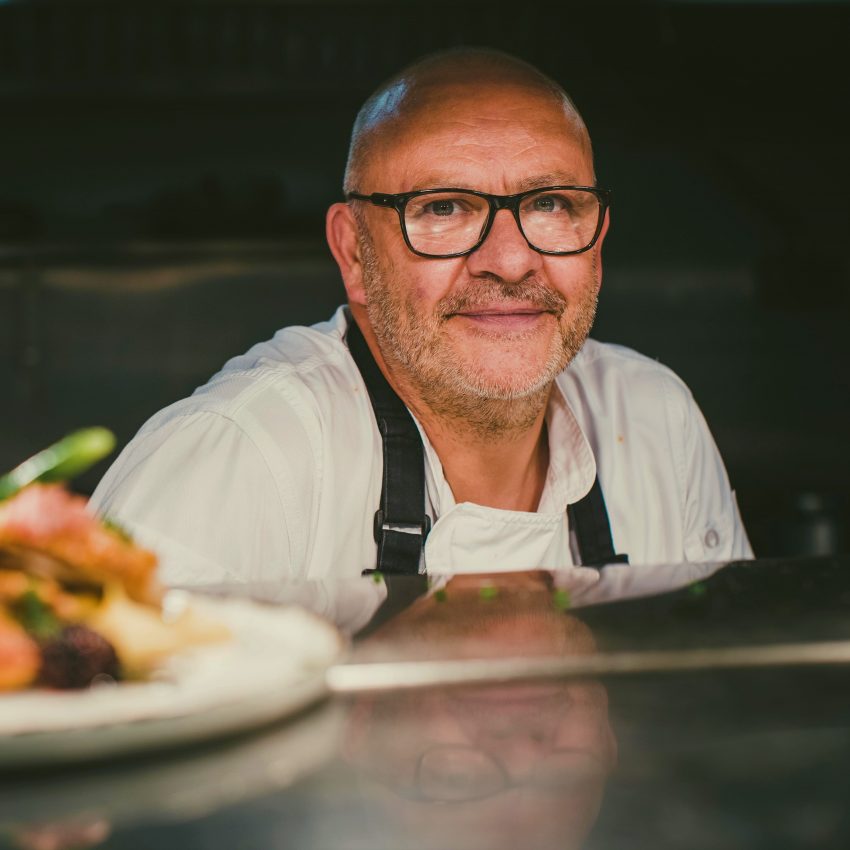1990
Scott Hessel
“I believe that the association with the Roux Brothers has been nothing less than a fantastic reward. ”

Scott Hessel won the Roux Scholarship in 1990, at the age of 19. He staged with Eckart Witzigmann at Aubergine in Munich and most recently he was Group Executive Chef of the Crieff Hydro group of hotels.
Scott’s career in hospitality started by working as a waiter in a local Huddersfield hotel. After watching the TV show Take Six Cooks, he realised that there was something different and exciting and so applied for a role at La Tante Claire in London. His career also took him to Germany for his Roux Scholarship stage at Restaurant Aubergine (under chef Eckhart Witzigmann), as well as to Hotel Konigshof and at Restaurant Patrizierhof with the youngest Michelin starred chef in Germany, Patrik Jaros.
On his return to England, Scott met and worked for David Barnard at the Crab & Lobster, this relationship led Scott to opening his own restaurants in Yorkshire: Mustards & Punch, Café Pacific, Alfresco, Trattoria, The Old Bore & Carlton Bore.
Scott then went on to become a director of Hesselmanns development consultancy, providing training, mentoring, food and brand development. At the helm of Crieff Hydro Family of Hotels Scott continued to nurture and mentor talent, build on food development and shape the future. We look forward to hearing about his next move.
How did it feel to win the Roux Scholarship?
I am proud to be associated with the Roux Scholarship. Winning was excellent, especially as at 19, I was one of the youngest ever to win. I believe that the association with the Roux Brothers has been nothing less than a fantastic reward. The family's continued association and support for all of us as scholars has been something for me to look up to and grow my own business from. They are a credit to the support of young talent in our country today.
What did you cook in the finals?
In the first round, I cooked a dish of monkfish, saffron, mussels and ratatouille, rather elaborately named ‘lotte roti farci au moules, colis de ratatouille et sauce safran’. I can still remember the dish so vividly and my bench being completely empty most of the competition to the judges' amazement. For the final we all cooked blanquette de veau, which I have later learnt is a favourite of the Roux family, a simple dish but often the one that catch chefs out.
What was it like to work in Germany and for Eckhart Witzigmann?
Eckart was a superstar chef, we always had the TV cameras at the back door, celebrities would be coming through the kitchen entrance. In his cooking, he was known for using the lesser parts, strong bold flavours, classics from his days with Paul Bocuse and the Haeberlin brothers, who I had the pleasure of cooking for. Stand-out memories for me about Eckart's food were innovation, the use of oriental spices on a lobster dish, our deliveries from Rungis twice a week, which used to be displayed on the pavement of the restaurant for Chef to glance over and have first pick of before other restaurants, the seven-course lunch menu, the dishes served were massive and in season we used to spend a thousand pounds a week on white truffles and that was back then.